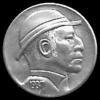D&c 107, Long Lives, And The Nature Of Revelation
-
Recently Browsing 0 members
- No registered users viewing this page.
-
Similar Content
-
Ken Live Blogs 192nd Semiannual General Conference
By Kenngo1969,
- general conference
- prophets seers and revelators
- (and 1 more)
- 15 replies
- 588 views
-
- 27 replies
- 3,540 views
-
- 10 replies
- 2,136 views
-
- 580 replies
- 25,941 views
-
- 63 replies
- 3,688 views
-






Recommended Posts